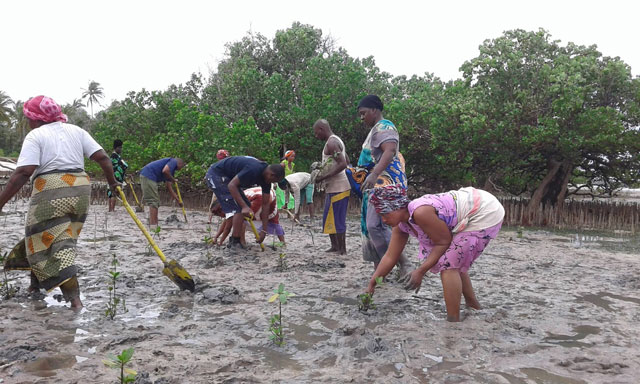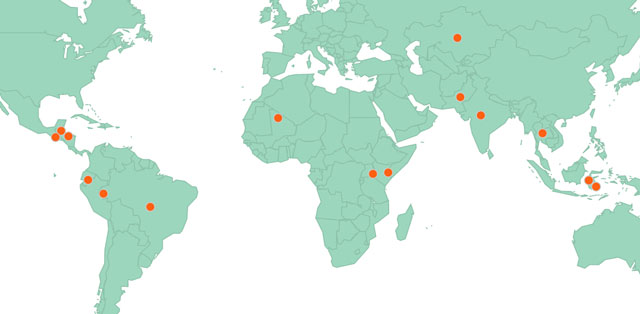
Kampala, Uganda | The INDEPENDENT | Fifteen communities advancing nature-based local solutions for sustainable development will each bank $10,000 following the announcment this week of the Equator Prize 2017 winners.
Two Kenyan companies Mikoko Pamoja and The Kuruwitu Conservation and Welfare Association are among the 15 winners. Each of the fifteen initiatives represents outstanding community and indigenous initiatives that are advancing nature-based solutions for local sustainable development.
While diverse in their innovations and areas of work, each winner demonstrates community-based, grassroots action to address environment, poverty and climate change challenges head-on. All the winners will be supported to attend the high-level award ceremony in New York in September 2017.
Following a global call for nominations, the Equator Initiative received a 806 nominations from 120 countries around the world.
Every two years, the Equator Prize honors and celebrates communities working to reduce poverty through the conservation and sustainable use of biodiversity.

Mikoko Pamoja
Started in 2013, Mikoko Pamoja brings together two communities in Gazi Bay in Southern Kenya to sell carbon credits from mangrove conservation, trading 3,000 tons CO2-equivalent per year in the voluntary carbon market. Mikoko Pamoja is the first community-based project of this kind in the world to successfully trade mangrove carbon credits.
Benefits are reinvested in the community to improve clean water access for 3,500 community members, provide educational materials to 700 school children, and to ensure the 117 hectare mangrove forest remains protected. Ecotourism provides a further source of income for this initiative, which is in the process of being replicated in other regions in Kenya and other countries.
The Kuruwitu Conservation & Welfare Association
Facing loss of income and concerns about food security, this association of 1,400 residents of the Kuruwitu coastal area north of Mombasa implemented the first locally managed marine area (LMMA) in Kenya, an 800 hectare co-managed area with two no-take zones. Since its establishment in 2006, the fish population in the LMMA has increased by 200 percent, fish biomass by 400 percent, coral cover by 30 percent, and seagrass species diversity by 12 percent.
The community monitors the protected area, protects local biodiversity using sea turtles as flagship species, offers educational programs, and supports local communities through a savings and credit cooperative that engages with local businesses, in particular those run by women.
This pioneering initiative has inspired the creation of 18 other LMMAs in Kenya and sparked the reform of national legislation around marine protected areas.

 The Independent Uganda: You get the Truth we Pay the Price
The Independent Uganda: You get the Truth we Pay the Price


